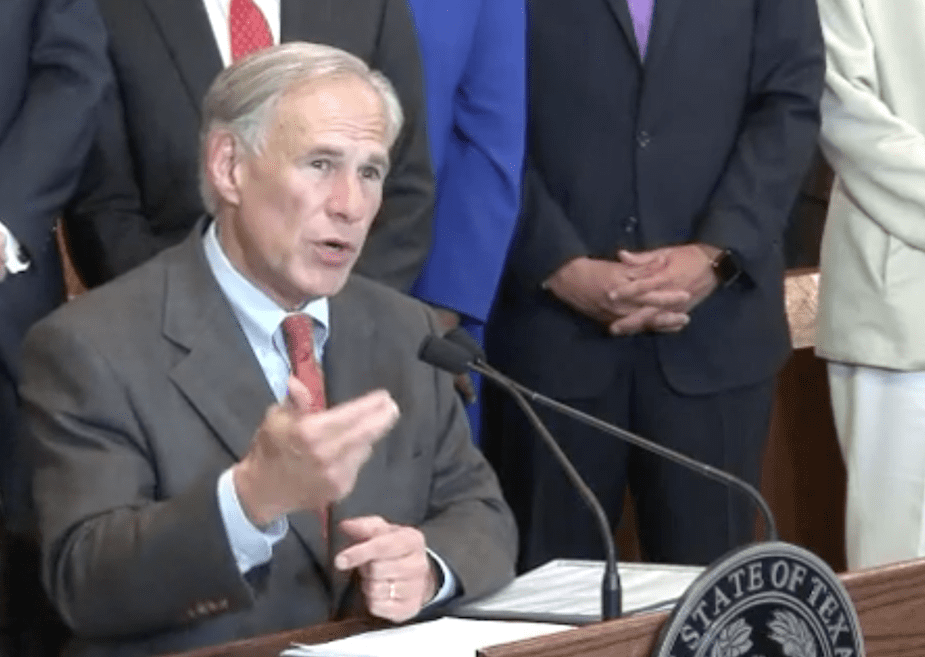
Gov. Greg Abbott (file photo)
In the Sept. 28 debate between Gov. Greg Abbott and Lupe Valdez, the governor said a bathroom bill is no longer on his agenda.
What the governor didn’t say was whether he would sign a bathroom bill if one crossed his desk. A number of Republicans in the House and Senate have promised to introduce bathroom bills in the next Legislature.
In the last session of the Legislature, numerous bathroom bills were proposed, with the final bill written by Rep. Matt Rinaldi. Speaker of the House Joe Straus refused to bring the bill to the floor of the Senate for a vote during the general session. When Abbott called a special session, he placed a number of items on the agenda, including the bathroom bill. The Senate quickly passed the bill that would have discriminated against trans people, but Straus again refused to put the bill up for a vote after leaders from major corporations around the state testified against it. Straus said he refused to be the reason for one person’s death.
The conservative Texas Association of Business said over the next 10 years, Texas could have lost $5.6 billion if the bill passed. In the upcoming election, TAB has endorsed Julie Johnson who is challenging Rinaldi.
Meanwhile in North Carolina
In related news out of North Carolina, a federal appellate court has ruled that that state’s House Bill 142 does not prohibit transgender people from using appropriate gender-specific public restroom facilities. The court is also allowing a challenge to portions of HB 142 invalidating local nondiscrimination ordinances to proceed.
The North Carolina Legislature passed HB 142 in 2017 to replace North Carolina’s highly controversial House Bill 2, which banned trans people from using appropriate public restroom facilities and invalidated local ordinances providing nondiscrimination protections, and which sparked a number of copycat bills and widespread outrage and boycotts.
The ACLU and Lambda Legal originally filed suit in 2016 against HB 2, winning a preliminary injunction to keep the University of North Carolina from enforcing it against three transgender plaintiffs in the case. When the Legislature replaced it with HB 142, ACLU and Lambda amended their suit to challenge the new law.
Joaquin Carcaño, lead plaintiff in the case, said in a press release, “I am relieved to finally have the court unequivocally say that there is no law in North Carolina that can be used to bar transgender people from using restrooms that match who we are. For the past two and a half years, I have been unable to use restrooms in my home state without worrying that I will be subject to discrimination, harassment, or even arrest. Our community has faced so much discrimination because of H.B. 2 and H.B. 142, and this decision will give us more support to defend the rights and basic humanity of our community members across the state.”
— David Taffet











